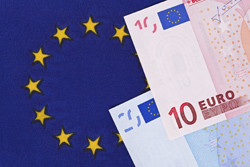Facing EU challenges ahead of 2030
During the next two decades, the EU and other major economies will need to cooperate to ensure global economic growth while balancing employment and income between countries. Backed by EU funding, the project 'Challenges for Europe in the world of 2030' (AUGUR)(opens in new window) mainly focused on how four different international governance contexts may affect Europe in 2030. Project activities covered political, economic, social, environmental and technological spheres and used a macro model of the world regions to calibrate its scenarios. The first scenario foresaw economic stagnation that impedes technological and research and development (R&D) capacity, produces scaled-down EU programmes, deters global talent, encourages human capital flight and increases global outsourcing. The second predicted the adverse effects of America's and China's interventionist policies on the EU and its relations with neighbouring countries. Europe's role as a global actor will be greatly diminished. Both powers will challenge its established industrial strengths. R&D and educational programmes will fail, leading to the loss of economies of scale and scope. In the third scenario, Europe is an area of solid regional integration. It propels regionalist trade and production integration, and engages in more concentrated R&D cooperation, as well as novel and efficient programmes. It yields influence in international policymaking and regulatory structures, and becomes relevant in energy supply and security. The final scenario envisages a federal European system in a more cooperative world. Global governance structures will be reformed and consensus will be reached on agenda issues in order to face major global challenges and in the first place the environmental one. Europe will be tasked with solving political economy issues at all levels to gain a stronghold on the global bargaining scene. Findings revealed that the last two scenarios produced considerable improvements in economic performance. AUGUR projected what could be achieved in 2030 if countries work together to address global challenges. National, regional and global governments need to lay down new terms of cooperation and recognise how such alliances will affect productivity growth and employment, as well as associated long-term economic and societal issues.






